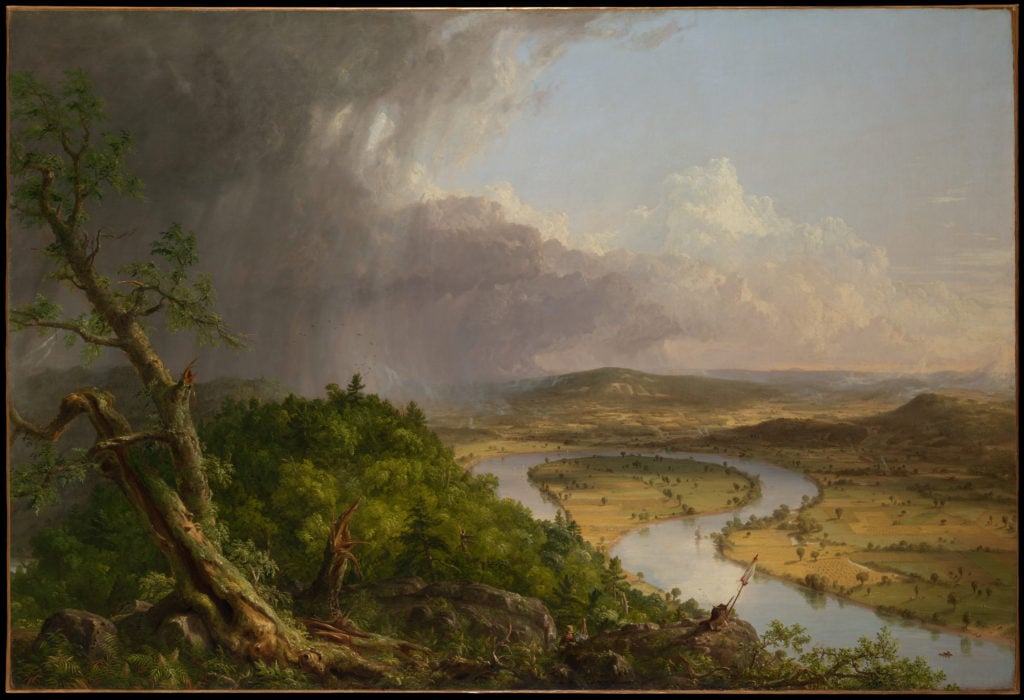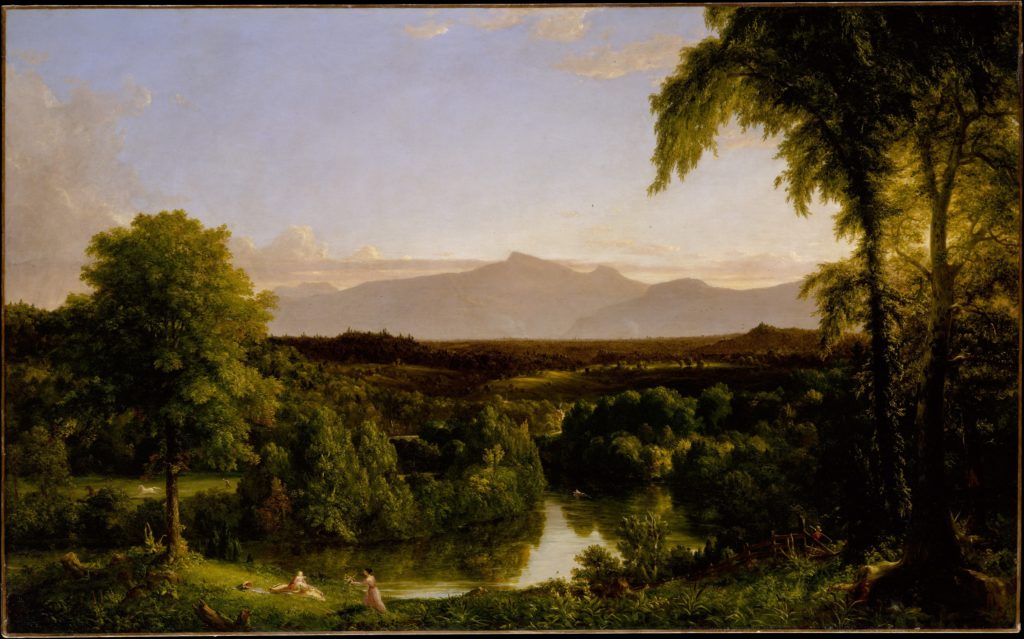Art World
‘Without Art Man Would Scarce Be Human’: Read Hudson River School Founder Thomas Cole’s Never-More-Relevant 1845 Lecture on Art’s Value
"Gold can purchase food," Cole writes, but art provides the "serenest pleasures."

"Gold can purchase food," Cole writes, but art provides the "serenest pleasures."

Thomas Cole

In 1845, three years before his death, the American painter Thomas Cole, who is widely regarded as the founder of the Hudson River School, wrote a lecture on the value of art as a public and moral good. Art, he wrote, “kindles the dead soul and raises it above the dullness of mere animal existence to intellectual acquirement.”
No record exists of Cole ever having delivered the talk. But his text, which has just been published by the Thomas Cole National Historic Site, makes a stirring case for the democratization of culture. “My earnest desire,” Cole writes, “is …that Art shall be exposed—free as air—to every Citizen, high or low, rich or poor.”
Below, read an excerpt from the closing pages of Cole’s Lecture on Art.

A portrait of Thomas Cole from around 1845. Courtesy Wiki Commons.
For as Nature and Society are ever changing in mutation, so Art, changing but never lost, may shine in this land in exceeding beauty. And what shall prevent? The Ages past have bequeathed to us their inestimable treasures and deep esthetic lessons. Knowledge flows in; Science facilitates and makes us acquainted with the material of Art and it requires no prophetic Spirit to predict a day of Art brighter than man has ever yet seen. Let us endeavor then to lift up the prostrate standard of Art and make a stand against this headlong Utilitarianism which prevails. Let us try to convince our fellow Citizens that the pursuit of the beautiful is as essential to our well being as that of Gain. Gold can purchase food, raiment, property, but Taste is that Gentle and refined Spirit which bestows on life its serenest pleasures and most exquisite delights. Without Art Man would scarce be human; with it he rises above the brute and takes a diviner nature.
Scorn not to prize and praise the fostering hand
That found thee weeping, orphaned and alone
Lone on the verge of life’s most barren strand.
I have now in a hasty manner presented various topics relating to Art. I have not tarried long with any though tempted strongly on my way; but have touched here and there on the shores of that beautiful world, not as one who would describe the wonders he finds therein, but as a surveyor who would mark the rocks, headlands and shoals that environ it.
It would have been an agreeable task had your patience permitted to have attempted a picture of an ideal, though not impossible world wherein the love of Beauty should pervade Mankind. Where Science which now rules and tyrannizes over the human mind take her place as servant to the necessities and desires of Man and go hand in hand, with her more gentle sister Art, to serve at that shrine whose incense should forever rise to him who is “Rich in love, full of Wisdom and perfect in the plentitude of Beauty.”

Thomas Cole, View on the Catskill—Early Autumn (1836–37). Collection of the Metropolitan Museum of Art.
Where the hills should be crowned with structures more magnificent than ever graced the steeps of the Acropolis Agrigentum, or the Seven Hills of Rome, whose marble pediments should live with Sculpture and whose halls pictured in various harmony emblazon the deeds of the mighty past and the prophetic visions of the Future Philosophy and Morals breathe in majestic forms—and Religion teaching through glowing symbols her wondrous History and Truths, entrance the wandering thought.
There by the magic power of Genius should be portrayed the glorious congregation of Mountains, woods, streams, sky and rolling clouds in their essential beauty. There Art should gladden the heart of man and teach him that the beauty she displays is a type of coming and enduring glory. And to the vulgar eye make known that there is beauty in the rolling clouds and placid shingle beach.
In feathery snows whistling winds and dun electric
skies;
There is beauty in the rounded woods dank with heavy
foliage,
In laughing fields, and dinted hills, the valley and its
lake.
There is beauty in gullies, beauty on the cliVs, beauty
in sun and shade,
In rocks and rivers, seas and plains,—the earth is
drowned in beauty.